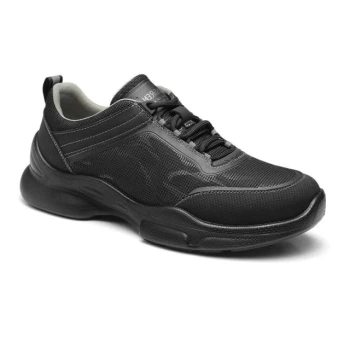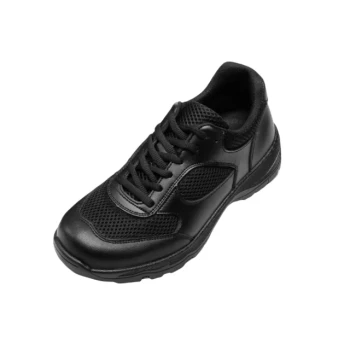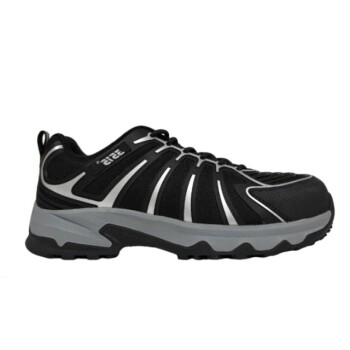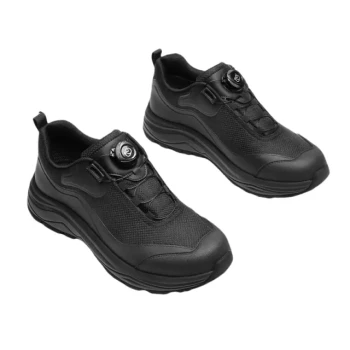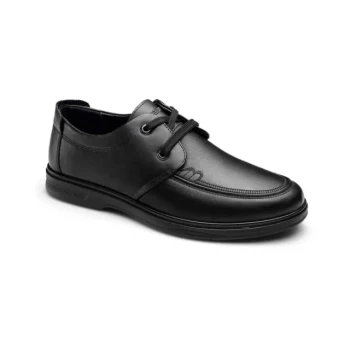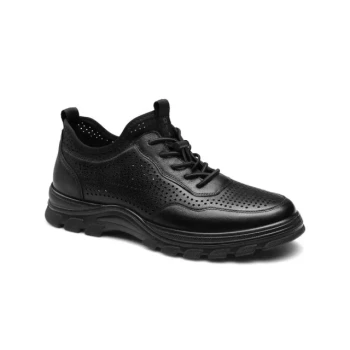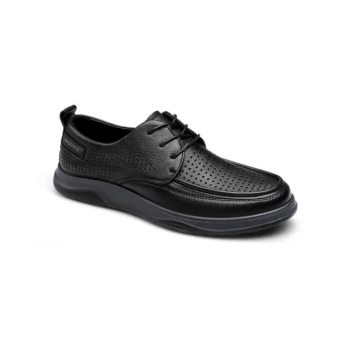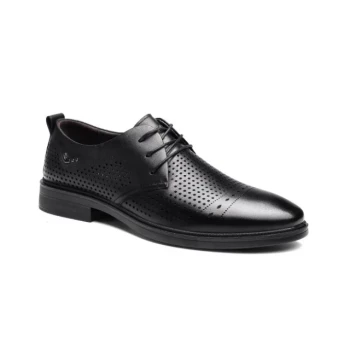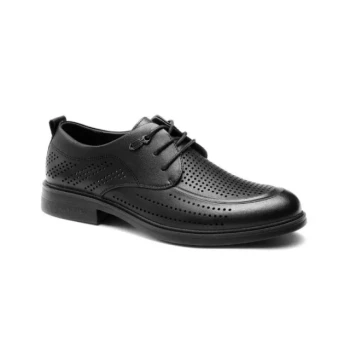In the context of footwear, biodegradable leather is a material engineered to decompose naturally at the end of its life. It is produced using organic materials and avoids the persistent, harmful chemicals often found in traditional tanning, aiming to offer a more sustainable choice for environmentally conscious consumers.
The term "biodegradable leather" refers not just to the material's ability to break down, but to a fundamentally different production process. It prioritizes non-toxic tanning agents to ensure the leather can safely return to the earth, unlike conventional leathers which can leach harmful chemicals into the soil.
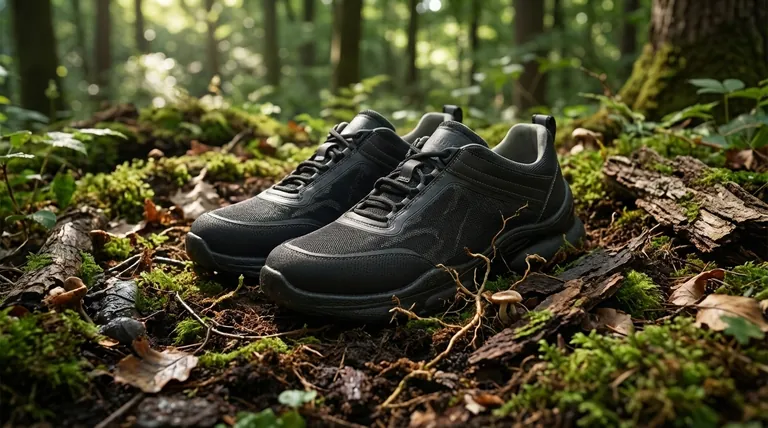
What Distinguishes Biodegradable Leather?
The core difference between biodegradable and conventional leather lies in the chemistry used to turn raw animal hide into a durable material.
The Tanning Process is Key
Traditional leather tanning, particularly chrome-tanning, uses heavy metals. These chemicals are highly effective for preservation but are toxic and permanently prevent the leather from decomposing.
Biodegradable leather relies on alternative methods, such as metal-free or vegetable tanning, which use organic compounds that allow microbes to break the material down later.
End-of-Life Design
This material is specifically designed with its disposal in mind. The goal is to create a product that can complete its lifecycle by returning to the biological system, reducing landfill waste and soil pollution.
How It Compares to Traditional Leather
Understanding biodegradable leather requires placing it in context with other common types of leather used in shoes.
Full-Grain Leather: The Benchmark for Durability
Considered the highest quality, full-grain leather is made from the strongest part of the hide. It is prized for its exceptional durability, breathability, and ability to develop a unique patina over many years.
These shoes are often seen as a long-term investment due to their extended lifespan.
"Genuine Leather": A Broad Standard
This is a catch-all term for real leather that isn't top-grain or full-grain. While still durable and comfortable, it doesn't have the same longevity as its full-grain counterpart.
Bi-Cast Leather: The Synthetic Hybrid
Bi-cast leather is made from a lower-quality split leather that is coated with a synthetic polyurethane layer. This creates a uniform look at a low cost but sacrifices breathability and durability, and its plastic coating makes it non-biodegradable.
Understanding the Trade-offs
Choosing a material is rarely a simple decision. Biodegradable leather presents its own set of considerations.
Durability vs. Decomposability
This is the central trade-off. Traditional full-grain leather achieves sustainability through extreme longevity—a shoe that lasts for decades doesn't need replacing.
Biodegradable leather achieves sustainability through its end-of-life impact. It is designed to be less persistent in the environment, which may inherently limit its maximum lifespan compared to chrome-tanned heirlooms.
Performance and Care
Newer biodegradable tanning methods may result in materials with different characteristics regarding water resistance, flexibility, and colorfastness. They may also require specific care instructions that differ from traditional leather products.
The "Biodegradable" Claim
The term itself requires scrutiny. True biodegradability depends on the specific tanning agents used and the disposal conditions (e.g., an industrial compost facility). Consumers should look for certifications to verify a manufacturer's claims.
Making the Right Choice for Your Footwear
Your final decision should be based on your personal definition of sustainability and your primary goal for the shoes.
- If your primary focus is maximum longevity and classic aging: Full-grain traditional leather remains an unparalleled long-term investment.
- If your primary focus is minimizing end-of-life environmental impact: Certified biodegradable leather is designed specifically to break down and return to the ecosystem.
- If your primary focus is budget and a uniform appearance: Lower-grade or bi-cast leathers offer affordability but sacrifice both durability and biodegradability.
Ultimately, choosing the right leather means aligning the material's entire lifecycle with your values.
Summary Table:
| Feature | Biodegradable Leather | Traditional Full-Grain Leather | Bi-Cast Leather |
|---|---|---|---|
| Core Focus | End-of-life decomposition | Extreme longevity & durability | Low cost & uniform look |
| Tanning Process | Metal-free or vegetable tanning | Often chrome-tanning | Synthetic coating on split leather |
| Durability | Good, but may be less than chrome-tanned | Excellent, develops a patina over years | Lower, prone to cracking |
| Environmental Impact | Designed to break down naturally | Long lifespan reduces replacement need | Non-biodegradable due to plastic coating |
Ready to Source Sustainable Footwear? Partner with 3515 Factory.
As a large-scale manufacturer, 3515 produces a comprehensive range of footwear for distributors, brand owners, and bulk clients. Whether you're looking to develop a line of shoes using certified biodegradable leather or need high-volume production of any shoe or boot type, we have the expertise and capacity to meet your needs.
Let's discuss how we can bring your sustainable footwear vision to life. Contact our team today for a consultation.
Visual Guide
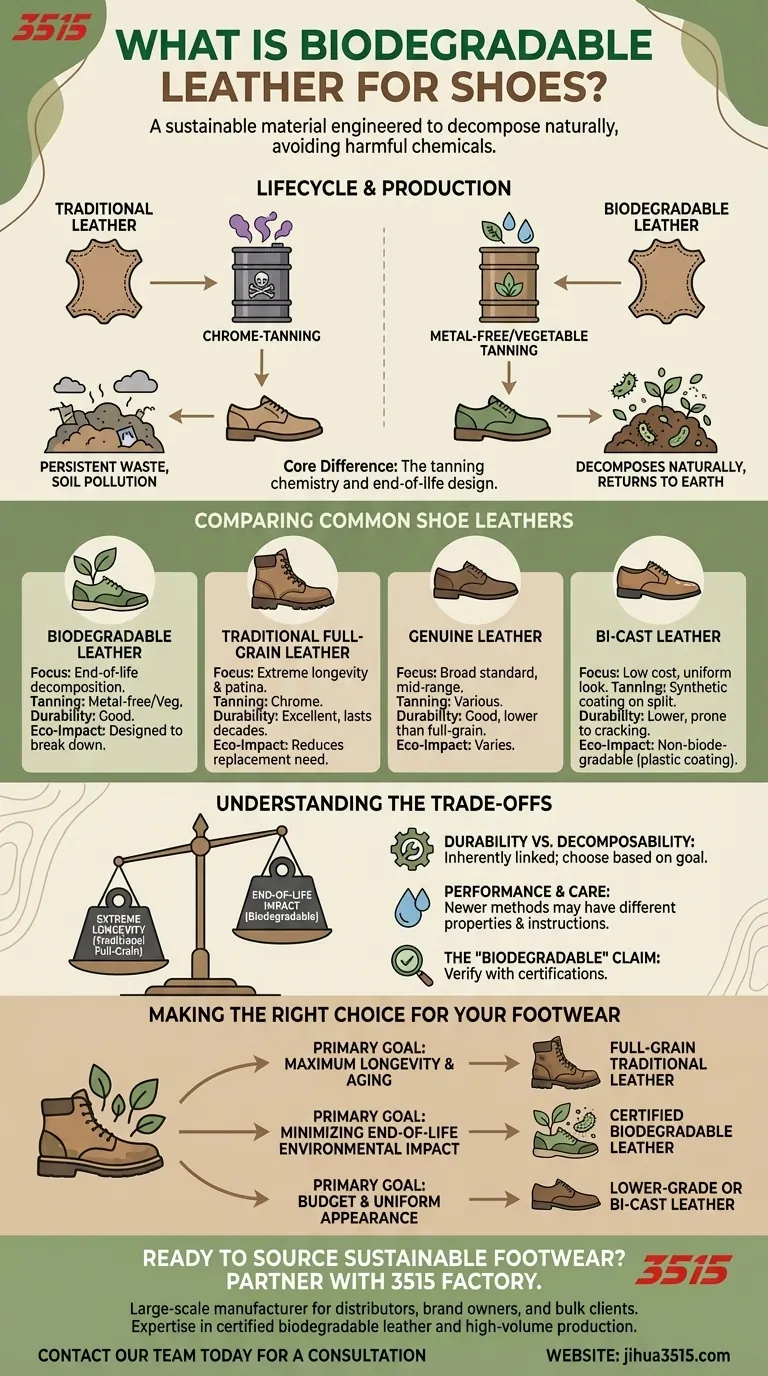
Related Products
- Wholesale Breathable Training Shoes Custom Athletic Footwear Manufacturer
- Factory Direct Wholesale Leather Comfort Shoes with Dial Closure
- Durable Rubber-Soled Utility Shoes for Wholesale & Custom Brand Manufacturing
- Wholesale Durable & Breathable Training Shoes for Custom Brands
- Custom Manufactured Air Cushion Leather Business Shoes for Wholesale
People Also Ask
- Does more ground contact area mean better support? Unlock the Secrets of Stable Footwear
- What is high-tech 'air' mesh, and how is it used in footwear? The Key to Cool, Lightweight Shoes
- What is a Flyknit shoe? The Ultimate Guide to Seamless, Lightweight Performance
- What are the benefits of athletic-style work shoes? Boost Comfort and Safety for Your Team
- What materials are best for athletic activities in warm climates? Stay Cool with Moisture-Wicking Fabrics
